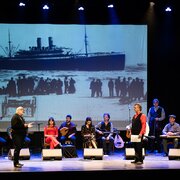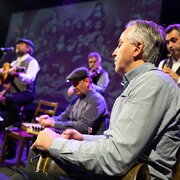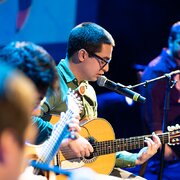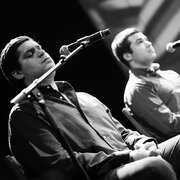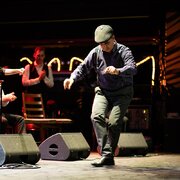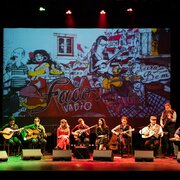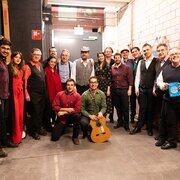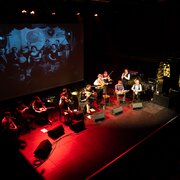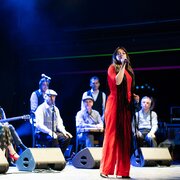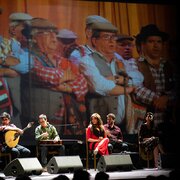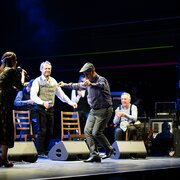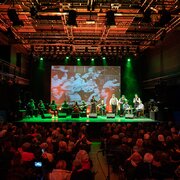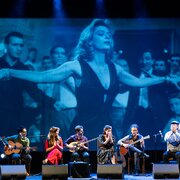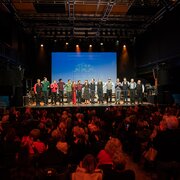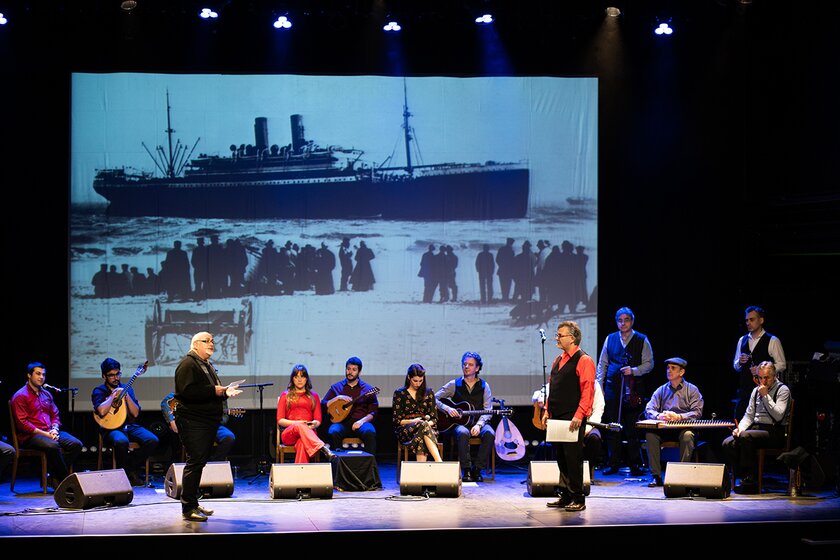
Videos
- country:Portugal
- region:Mediterranean
- style(s):Folk, World Pop
- label:not signed
- type:Band, Large Ensemble
- gender:male, female
- instrumentation:instrumental, vocal, percussion, visual, lute
- artist posted by:Medigrecian
Line up
- Alkis Zopoglou (Kanun)
- Antonis Karantzas (Bouzouki)
- Bernardo "Buba" Espinho (Guitar, Vocals)
- Bruno Chaveiro (Portuguese Guitar)
- Drosos Koutsokostas (Lute, Vocals)
- Kyriakos Petras (Violin)
- Luis Filipe dos Reis (Vocals)
- Luis Trigacheiro (Vocals)
- Maura Airez (Vocals)
- Nikos Angousis (Clarinet)
- Sotiria Diamanti (Vocals)
- Yorgos Pangozidis (Percussion)
- Yorgos Stergiou (Oud, Guitar)
Links
Three of the rarest music genres, all of them inscribed on UNESCO’s Representative List of the Intangible Cultural Heritage of Humanity, will be presented on stage by notable performers from Greece and Portugal.
Rebetiko, a musical and cultural expression directly linked to song and dance that initially spread among the urban lower and working-class populations in the early twentieth century. Rebetiko started from the alleyways and the cafés Aman of Smyrna in Asia Minor and Constantinople (Istanbul), carried on in the neighborhoods and taverns of Piraeus in Greece, and with its genuine simplicity and honesty still touches the human soul.
Fado, an urban musical landmark of Portugal, a performance genre incorporating music and poetry widely practiced by various communities in Lisbon, and Cante Alentejano, a genre of traditional two-part singing performed by amateur choral groups in the region of Alentejo in southern Portugal, characterized by distinctive melodies, lyrics and vocal styles, and performed without instrumentation, welcome - with their passion and emotion - anyone who wishes to cross and explore the Mediterranean.
All three genres constitute the music of suffering people, with very strong references to their daily difficulties for survival. Music created for all aspects of love, and the way love touches the human existence. Some of the most characteristic musical instruments which have marked the music tradition of their land, such as the Greek bouzouki, the Portuguese guitar and the kanun, are tangled with the singing and serenading voices of the performers, taking the audience to exceptionally beautiful and pure places.


